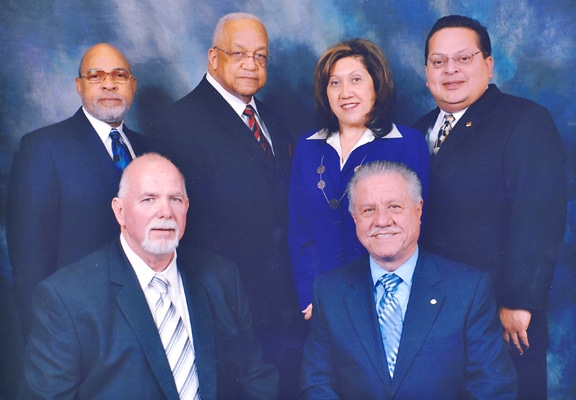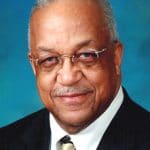Independence, Ohio (March 25, 2024) — The union representing the transit operator involved in the Los Angeles bus hijacking demands immediate measures to protect their men and women, and the people they transport, from violence. The LACMTA incident, which hospitalized a union member, is the latest in a long series of incidents that expose the urgent need for our nation to rethink and prioritize the safety of public transit employees.
The Transportation Division of the International Association of Sheet Metal, Air, Rail and Transportation Workers (SMART-TD) represents bus and transit agencies from coast to coast. Late Wednesday, March 20, a man pulled a weapon on our member. He forced the bus operator to ignore traffic lights and oncoming vehicles. The result of the hijacker’s actions included injuries to the driver of another vehicle and the bus slamming into and damaging the Ritz-Carlton Hotel. Thankfully, our member was treated and released from a local hospital, and no one was killed.
“This is unacceptable. SMART-TD and I, personally, have been told repeatedly that our bus operators’ lives matter. We have been shown plans to form safety committees on bus properties, and directives straight from the Oval Office have demanded the Federal Transit Administration safeguard these men and women,” SMART-TD President Jeremy Ferguson said. “Our members are on the ground getting guns in their faces and putting their lives on the line. The time to ‘plan’ has long passed. We know what these professionals need, and that list is publicly available to the FTA and every bus and transit agency CEO and board. Employers must act now to protect their workers.”
In recent weeks, in addition to the Los Angeles incident, violence has been perpetuated on transportation workers serving SEPTA in Philadelphia, the New York City MTA and elsewhere.
FTA has solicited suggestions and opinions from SMART-TD and other labor organizations multiple times to prevent these nightmarish scenarios. SMART-TD has called for:
- Providing operators with full enclosure in bullet-proof, glare-resistant glass.
- Armed police or security officers on these buses.
- Felony-level charges and punishments with a long, nonnegotiable jail sentence to anyone who assaults bus operators or transit workers.
- Making fare payments and monetary transactions cashless and not incumbent on the bus operator.
- Giving the bus operator an emergency exit on the left side of the bus.
- Providing drivers with silent alarms allowing them to alert police of live shooters.
“Our position has always been consistent. We are facing a national epidemic of bus and transit assaults, and the only way we can address it is through immediate action by transportation agencies on these common-sense measures insisted upon by SMART-TD and the Biden/Harris administration,” President Ferguson said. “Our drivers should never have to worry about a physical confrontation over control of their steering wheel, as happened in the Los Angeles incident.
“These requests are non-negotiable, nor are they property-specific. They need to be universal and federally mandated. They need to happen NOW,” Ferguson said.
“As the president of this union, I’m entrusted to protect the well-being of our members. My options are limited. If the workplace this nation’s transit agencies provide is not safe, the one thing I can do is call for a safety standdown on all SMART-TD bus properties. A decision to keep our operators home is not one I take lightly, but neither is calling the mother, father, child, or spouse of one of my members to inform them their loved one was the victim of a violent incident that was preventable with simple safety measures. SMART-TD will not allow our brothers and sisters to work in what we know are unsafe circumstances.”
“If the leaders in the public transportation sector of this nation refuse or prove incapable of protecting our men and women, in the wake of what we saw in Los Angeles, make no mistake. This union will.”
###
If you’re interested in speaking more about transit worker safety, and the changes SMART-TD is calling for, we’d be happy to connect you with:
SMART Transportation Division President, Jeremy Ferguson
President Jeremy Ferguson, a member of Local 313 in Grand Rapids, Mich., was elected president of SMART’s Transportation Division in 2019. Ferguson, an Army veteran, started railroading in 1994 as a conductor on CSX at Grand Rapids, Mich., and was promoted to engineer in 1995. Ferguson headed the 2019 national rail negotiations for the union.
SMART Transportation Division Bus Department Sr. Vice President, Alvy Hughes
Vice President Hughes, a member of Local 1596 out of Charlotte, N.C., began his career in transportation with the Charlotte Area Transportation System in 1999 and has been a SMART-TD member ever since. Hughes was an Alternate Vice President at SMART-TD from 2014 through 2019, when he was elevated to his current role as Vice President.
SMART Transportation Division Bus Department Vice President, James Sandoval
Vice President Sandoval began his career as a bus operator at the Santa Cruz Metropolitan Transit District for more than a decade. He assumed his first officer roles as general chairperson of GCA-SCM, alternate legislative representative, and local chairperson of LCA-SCM in January 2019. In February 2022, he assumed the position of Local 23’s legislative representative. In August 2022, Sandoval became alternate vice president of the Bus Department, serving the western portion of the nation. On Oct. 1, 2023, he was elevated to the position of TD Bus Department vice president.


 Some 600 mourners – including more than 300 coworkers and UTU officials — attended the funeral June 9 of slain Los Angeles County Metropolitan Transportation Authority (LACMTA) bus operator Alan Thomas, who was murdered May 20 by a lone passenger.
Some 600 mourners – including more than 300 coworkers and UTU officials — attended the funeral June 9 of slain Los Angeles County Metropolitan Transportation Authority (LACMTA) bus operator Alan Thomas, who was murdered May 20 by a lone passenger.